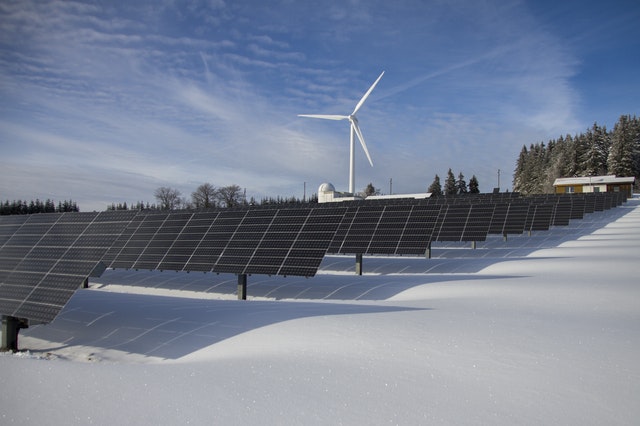Today, solar panels are everywhere, from residential homes to supermarket roofs. Thankfully, this is a win-win solution for us and the environment. Solar energy is probably the closest thing to easy money, and we haven’t yet experienced its full potential.
In the last two decades, several governments worldwide have passed laws that allow homeowners who have solar panels to sell excess energy to the main grid. This practice is called net-metering, and it was introduced to encourage people to invest in solar panels.
Governments are slowly adapting solar energy to ensure less reliance on traditional energy sources like natural gas and coal. As a result, we can reduce the globe’s overall carbon footprint.
Solar panels are clearly no longer foreign, but many people still don’t understand how they work.
That is why we’ve compiled this article to answer any questions you might have about solar panels.
So let’s get to it.
How do Solar Panels Work?
Solar panels allow photons (light particles) to knock electrons free from atoms. The result is a generated electricity flow that you can use in the household to power your solar air-con.
In simpler terms, solar panels convert energy from sunlight to electricity. They have photovoltaic cells that can only convert solar energy to DC power. That is why you need an inverter to convert this to grid-quality AC power.
Every photovoltaic cell is made up of two silicon slices that are semi-conductors. To work, each cell establishes an electric field that results due to the existence of opposite poles as it is the case with magnetic fields.
The silicon slices are usually doped with other materials during manufacturing, to give each slice a negative or positive charge.
How Long will Solar Panels Last?
If you’re using your solar panels to power your solar air conditioning, you probably want to know how long they will last. Ideally, solar panels should serve you for 25-30 years; that is a really long time.
However, many solar panels, especially those from Blue Raven Solar, last longer because their parts don’t wear out quickly. Unlike many consumer goods, solar panels tend to continue functioning as they should even after the warranty period elapses. You will notice a slight difference in efficiency, but the electricity generated will still be clean.
As you can see, you don’t have to worry about replacing your solar panels anytime soon. A study done in 2012 revealed that photovoltaic degradation results in a loss of just 0.5% of the solar panel’s original efficiency each year. So by the end of 25 years, your solar panel will still be able to function at 88% efficiency.
Fun fact! Photovoltaic means; able to produce voltage through photoemission due to exposure to radiant energy (light). This is basically a long way of saying, converting sunlight to electricity.
What Sort of Maintenance is Required?
Solar panels do not require much when it comes to maintenance because of how long they’ve been built to last. All you need to do is keep them free from snow and debris. It would also help if you replaced the inverter at least once every five years to keep the efficiency up.
Like solar panels, inverters come with a warranty that ranges between 5 to 15 years. Unlike solar panels whose efficiency dwindles as the years pass by, your inverter will simply stop working. Replacing it before this happens saves you from unprecedented interruption on your solar air conditioning and other appliances in your household that solely rely on solar energy.
You will be pleased to know that there are solar panels that come with an in-built micro-inverter. They have a much longer lifespan and make your solar panels much easier to maintain.
Do Solar Panels Work on Rainy, Cold or Cloudy Days?
Since solar panels get their energy from sunlight, you must be wondering if they work on cloudy, rainy, or cold days. They work just fine, but rainy and cloudy days aren’t ideal for solar panels. That is why countries that have hot and humid weather like the Philippines are the ones with the most number of installed solar panels. This way, residents can use the solar air conditioner Philippines for a bearable indoor environment.
The bottom line is, you save a lot of money by installing solar panels on your roof. A few cloudy days will not prevent your solar panels from converting solar energy to electricity. This is a system that pays for itself because it not only lasts a lifetime; but also lowers your reliance on power from the main grid.
Bear in mind that your savings will vary based on the overall climatic conditions of each year. The average sunlight your region gets also impacts how much money you save by having solar panels installed.
Wrapping Up
Solar panels work by a very simple principle. Thanks to them, homeowners can reduce their reliance on electricity from the main grid. If you’ve not installed solar panels on your roof yet, we hope this article will convince you to jump on the bandwagon.


 By
By 




